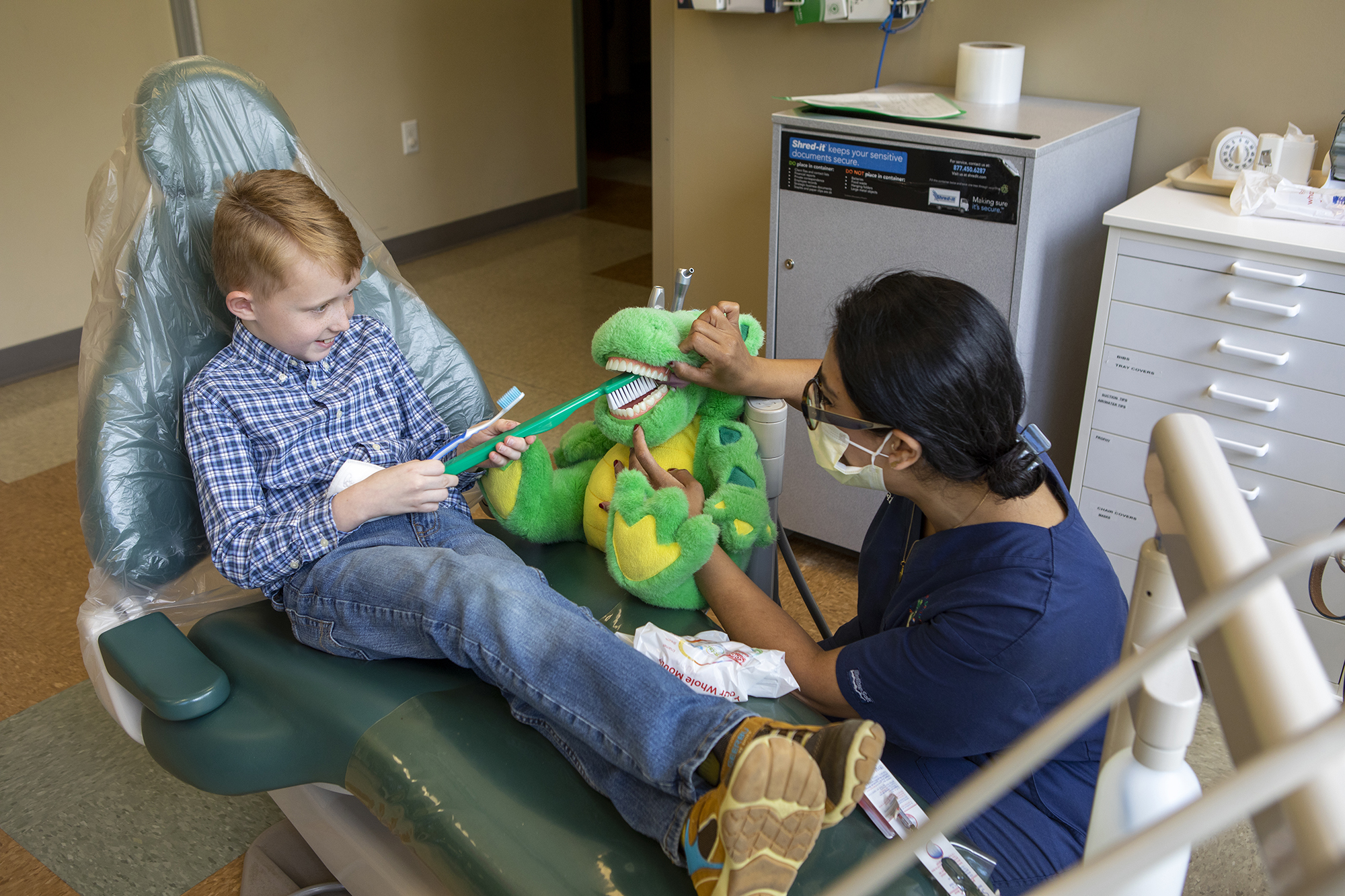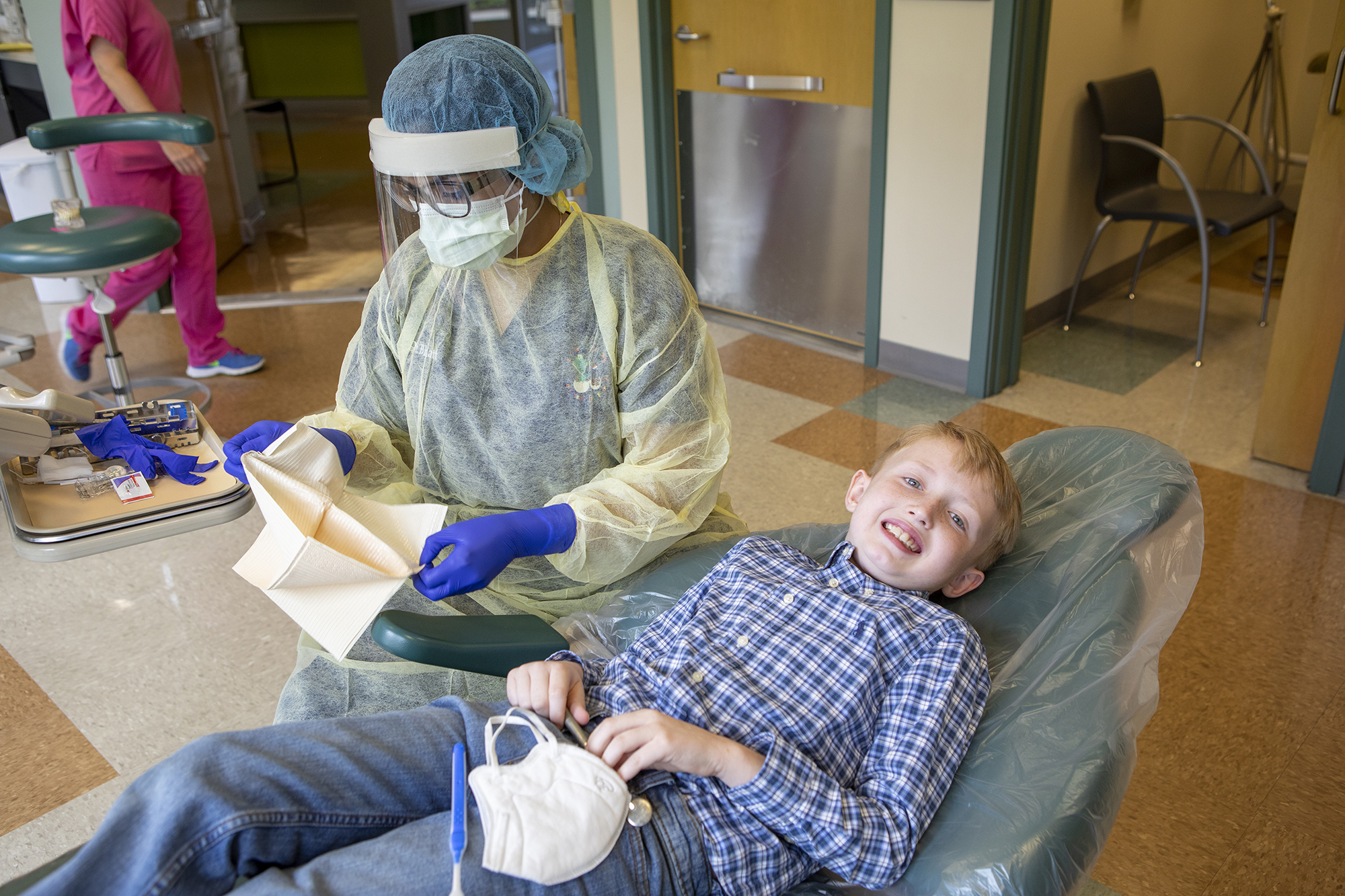5Oral Health

This strategic initiative provides dental care to at-risk and underprivileged children of Collier Country through the NCEF Pediatric Dental Center in conjunction with a mobile sealant program.

Oral Health is essential for child wellbeing, and untreated oral diseases can cause pain, infections and problems with eating and speaking, which impacts a child’s ability to learn and grow. Dental caries (tooth decay) is among the most common chronic childhood diseases, ahead of asthma and hay fever. Oral health care is the most prevalent unmet children’s health need especially in low-income, minority and rural communities.

Since inception of the oral health surveillance system in 2013, over 6,000 children now have a brighter smile thanks to the 60% increase in the number of 3rd grade students with dental sealants on their permanent molars.

NCEF's Contribution to the Solution

Children’s Oral Health
The goal of the children’s Oral Health Initiative is to address the pressing issues surrounding children’s oral health and work towards ensuring every child has access to quality dental care. We understand the challenges faced by children, especially those from low-income families, and aim to make a difference in their lives.
Since 2006, NCEF and University of Florida College of Dentistry have worked closely to establish this initiative through a multiphase process including the NCEF Pediatric Dental Center at Florida SouthWestern State College to expand clinical services. Phase II established a prevention-focused community outreach effort followed by Phases III and IV which added evidence-based, community-delivered and minimally invasive treatment for dental disease.
As a Federally Qualified Health Center, Healthcare Network (HCN) provides care regardless of a patient’s access to financial resources. Their main priority is treating and educating the patient on proper oral health care. Through NCEF support to hire necessary staff, pediatric dentistry is available at their Nichols Community Health Center along with pediatric dental sedation.
Florida was one of just three states receiving an ‘F’ grade in two consecutive Oral Health Report Cards issued by the Pew Center on the States. The grade was largely due to extremely low Medicaid reimbursement rates, the nation’s lowest dental care utilization by Medicaid recipients, the lack of an oral health surveillance system and one of the nation’s most restrictive state practice acts on dental hygienists’ ability to independently provide preventive services.
In 2020, the Department of Health reported 287 active dentists in Collier County, but less than 2% accepted Medicaid patients, thus limiting access to quality care for impoverished children. In these low-income communities, oral health care is the most prevalent unmet children’s need. In addition, the presence of severe disability requires the use of care under general anesthesia. However, because of the limited number of qualified health personnel, waiting time before intervention can be long. While often thought of as a health crisis, severe medical complications resulting from minimal oral care and treatment can be extremely dangerous or even fatal.
To address the serious gap in oral health services, NCEF’s efforts focus on improved access to dental care, promoting oral health education and increasing preventative practices.
Since 2006, NCEF and University of Florida College of Dentistry have worked closely to establish this initiative through a multiphase process including the NCEF Pediatric Dental Center at Florida SouthWestern State College to expand clinical services. Phase II established a prevention-focused community outreach effort followed by Phases III and IV which added evidence-based, community-delivered and minimally invasive treatment for dental disease.
As a Federally Qualified Health Center, Healthcare Network (HCN) provides care regardless of a patient’s access to financial resources. Their main priority is treating and educating the patient on proper oral health care. Through NCEF support to hire necessary staff, pediatric dentistry is available at their Nichols Community Health Center along with pediatric dental sedation.
By promoting oral health literacy and preventative practices in partnership with community based organizations throughout the county, initiative partners are working collaboratively to ensure all children and families have access to critical health care and reduce the incidence of urgent dental needs.

We are proud to collaborate with esteemed organizations that exemplify the highest efficacy standards.
Blueprint Partners including University of Florida College of Dentistry and Healthcare Network collaborate to optimize funding and develop innovative programs to provide dental care to at-risk and underprivileged children of Collier Country.

Help Move Our Mission Forward
We encourage you to take action and support children’s oral health. Start by spreading awareness about the importance of oral health in your community. Educate others about the impact of poor oral health on learning, overall health and quality of life.
As the need in our community continues to grow, your giving strengthens our ability to achieve our mission. Thank you for support!









